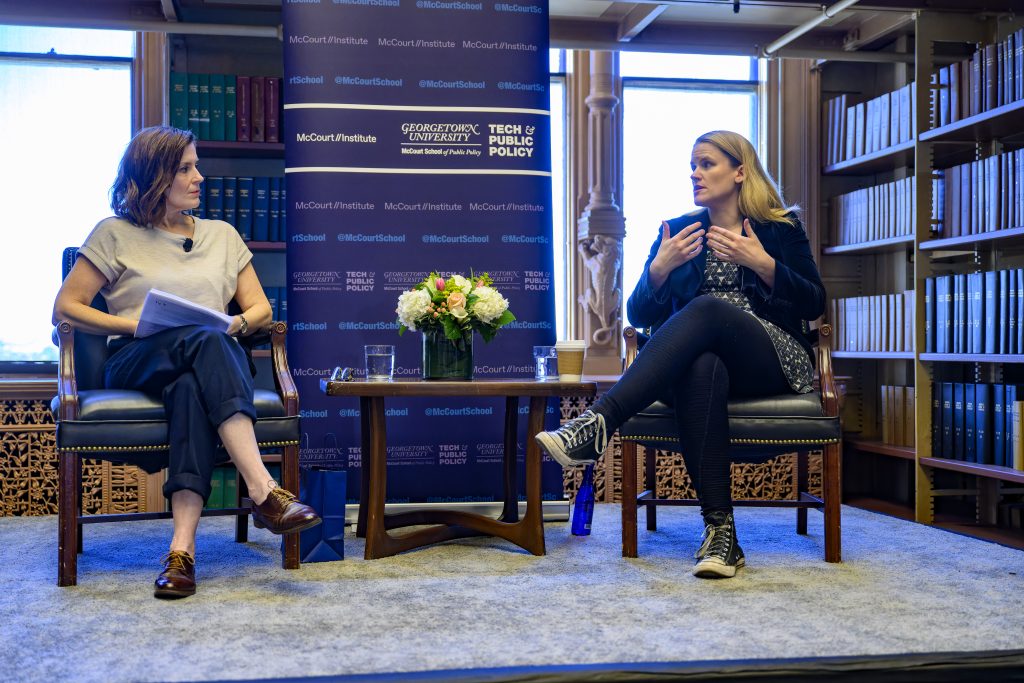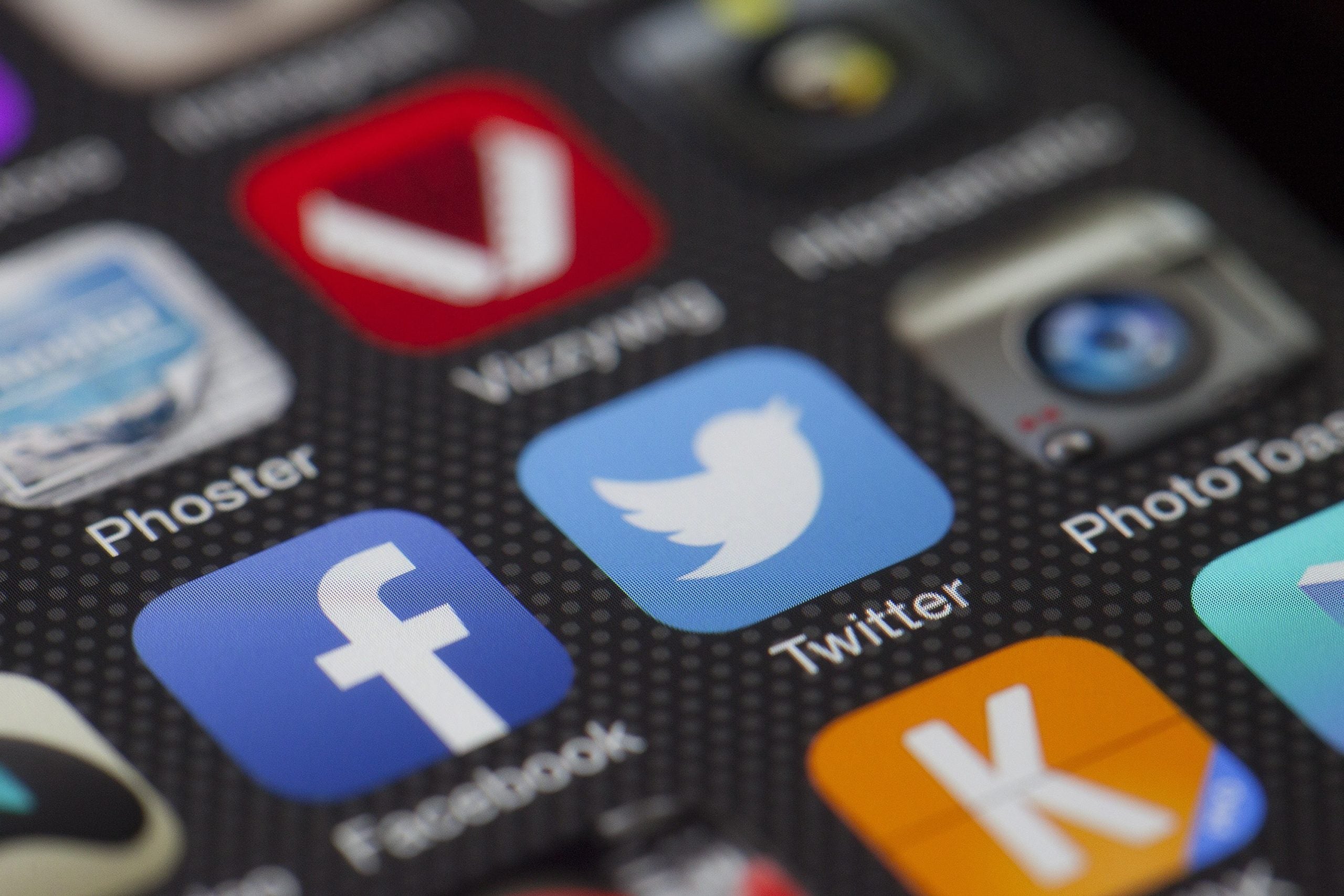The future of free speech on the internet
Members of the Georgetown community joined the McCourt School’s Tech & Public Policy program for a discussion about the future of free speech on the internet with social media advocate and Facebook whistleblower Frances Haugen.
Earlier this year, the Supreme Court of the United States (SCOTUS) reviewed what could be a landmark case for the tech industry — Gonzalez v. Google LLC. The case focuses on whether Section 230 of the Communications Decency Act shields internet platforms from liability for hosting and moderating user content.
The McCourt School of Public Policy’s Tech & Public Policy (TPP) program hosted social media advocate and Facebook whistleblower Frances Haugen for a discussion on the impact SCOTUS’s ruling on this and several other cases could have on the future of the internet.

Following an introduction from Tech & Public Policy Fellow Rachel Bogdan (MPP-E’24), TPP program Director Michelle De Mooy and Haugen focused first on the harms of social media.
When analyzing the data on teenage mental health and social media, Haugen found that “people who were socially isolated were the most negatively impacted by social media because they had no other interactions or information sources outside of what they were seeing online.” Her organization Beyond the Screen contends that “places that have more community fabric —parks, community centers, fraternal orders, coffee shops, bars — have healthier people because individuals have another network for coming to a consensus on reality.”
“Social media silos,” or communities that are dominated by a single point of view, are at the core of Gonzalez v. Google LLC, as the plaintiffs argue that Google, through its subsidiary YouTube, violated the Anti-Terrorism Act by aiding and abetting a terrorist organization, promoting the group’s videos through its recommendation algorithm.
Creating impactful change in the United States
While European regulators are debating the application of the Digital Service Act (DSA), which aims to create a safer digital spaces where the fundamental rights of users are protected and to establish a level playing field for businesses, United States lawmakers have not been able to create impactful change in this area for more than two decades.
Haugen attributed this struggle to “a lack of muscle in the tech policy space,” as students across the country are often unable to take college-level courses on this subject matter and are therefore unable to advocate effectively for change.
Haugen added that, “as it stands, any algorithm built with the data we have today would not have enough information to remove all of the harmful content on the internet without taking down an equal, if not greater, amount of safe content.” She continues to call for increased transparency from internet platforms and said that “organizations focusing on building decentralized platforms, such as Project Liberty, allow for greater content sharing…and therefore better public safety practices.”
According to the National Institutes of Health, 15% of children in the U.S. between the ages of 12 and 17 report having at least one depressive episode each year, and 35% of U.S. children in this same age group report being on at least one of the five major social media platforms at least once a day. Haugen believes that social media exposure has forced children to “commodify themselves” from a young age, lessening their ability to learn about the world without judgment.
“A kid who has always had to think of themselves as a product never got a chance to relax and become themselves, and we are seeing the impact of that in the declining mental health of young people.”
Frances Haugen
While the future of the internet and its regulation are uncertain, Haugen urged students “to believe that there is a way to make the internet a safer place.”
“New communication platforms are always disruptive,” she said, “but every single time before, we have learned and we have adapted, and we have come out stronger.”
To stay up to date on events and news from McCourt’s Tech & Public Policy program sign up for our newsletter
